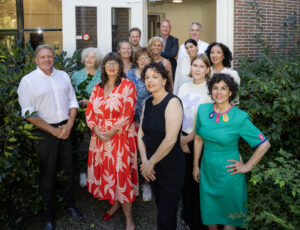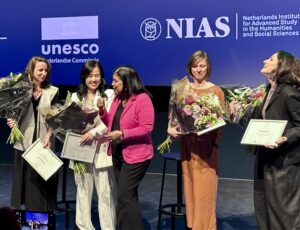On Thursday, 14 April 2011 at 11.00, Victor van Daal, NIAS Fellow 2010/11, will hold a seminar in NIAS’s Lecture Room about the development of direct assessment methods of language learning. Special guest Professor Anne Cutler (Max Planck Institute for Psycholinguistics) will speak about early word recognition and later language ability.
Over the last couple of years we have built up a consortium of researchers who have a common interest in second language learning called EUROGENIALs (EUROpean GENetics In Acquisition of Languages). Countries represented in the consortium include Norway, Sweden, United Kingdom, France, Spain, and The Netherlands. In the seminar Victor van Daal will introduce the collaboration project briefly and speak about the development of direct assessment methods of language learning on which he works during his stay at NIAS.A special guest, Professor Anne Cutler who coined the EUROGENIALs acronym, will then speak about early word recognition and later language ability.
Individual differences in language ability appear in all types and at all levels of linguistic performance, and are even observed in speech perception within the first year of life. For instance, one ability that is vital for building the initial vocabulary is recognizing previously heard word forms when they reappear, and especially when they are embedded in a continuous speech context. Event-Related Potentials (ERPs) reveal that 10-month-olds show a clear recognition response for familiarised words reoccurring in continuous speech, relative to unfamiliar words. Seven-month-olds do not consistently show this.
The PhD project of Caroline Junge in Anne Cutler‘s lab has shown that this ERP segmentation measure relates in several different ways to later language development:
First, seven-month-olds with ERPs similar to the 10-month-old norm displayed significantly higher language scores at three years of age than seven-month-olds with different ERP patterns.
Second, 10-month-olds who recognized words previously presented once, within an utterance, later had larger vocabularies than 10-month-olds who could not perform this task.
Third, infants who recognised words heard in continuous speech when they re-occurred in continuous speech outperformed, at known-word recognition at 16 months, infants who did not show this pattern. Thus the presence, the size and the form of an ERP segmentation response in the first year of life serve as robust predictors of later language development.
The lecture is followed by an open discussion.



